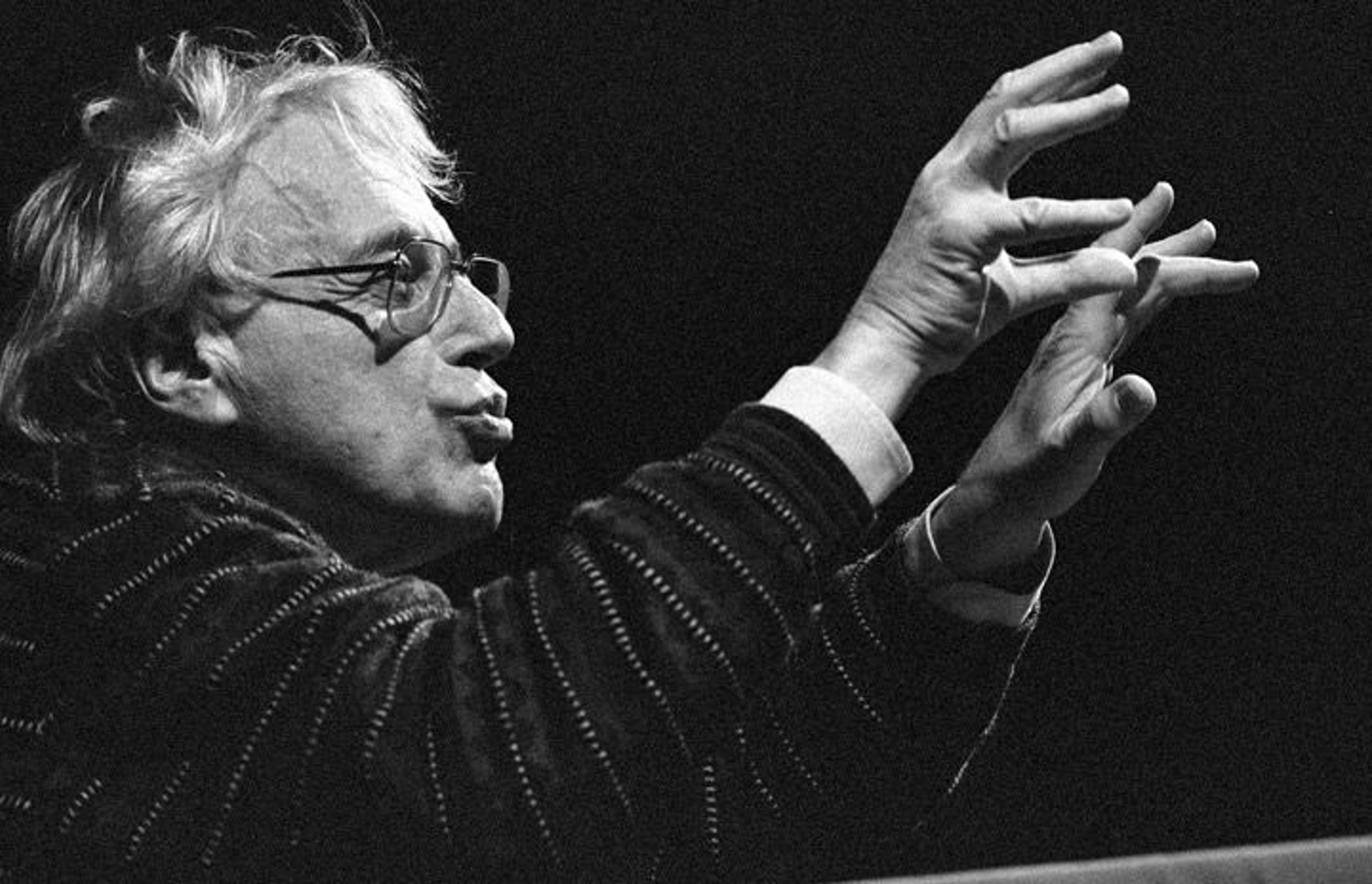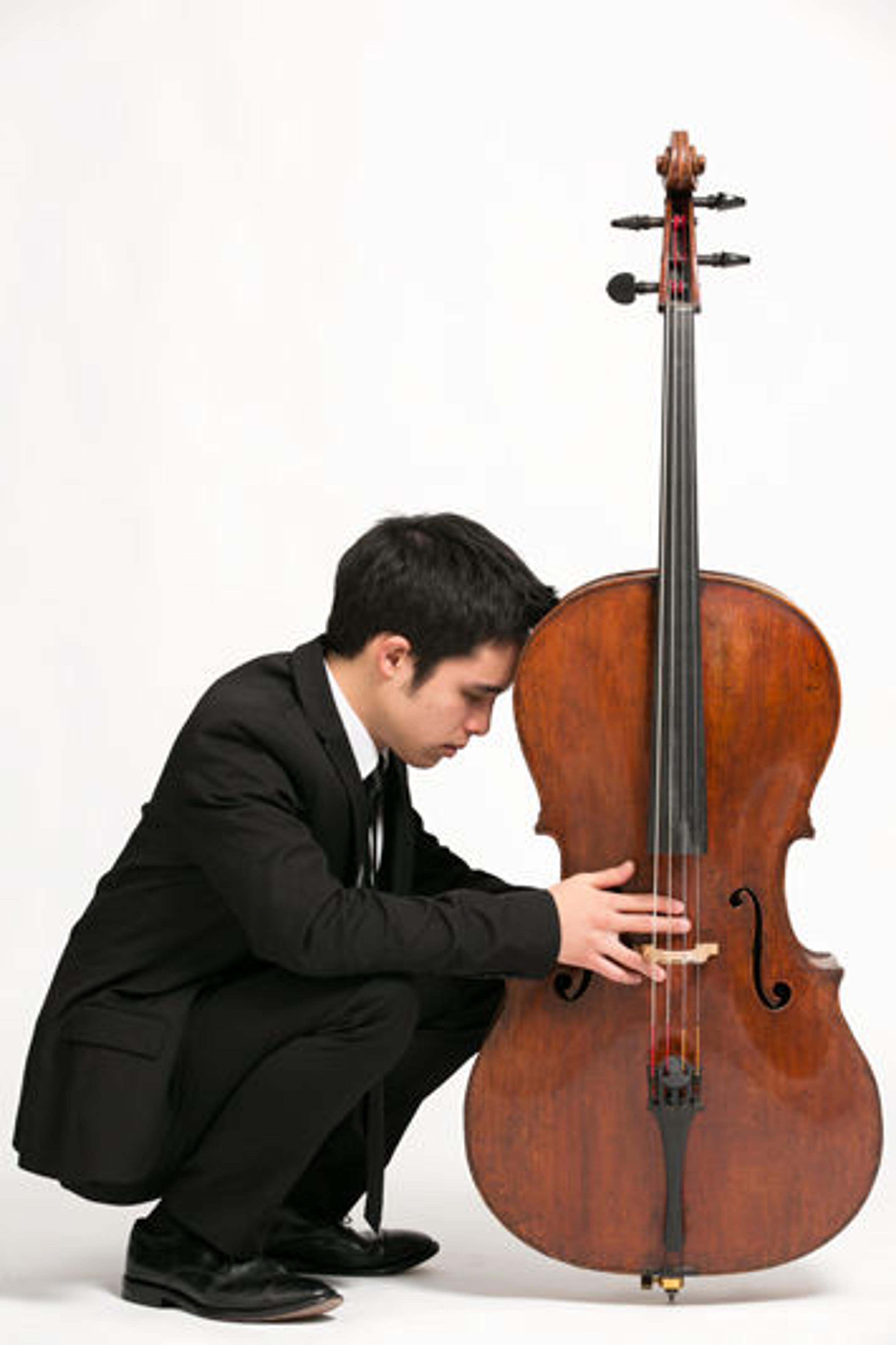
György Ligeti. Photo © Co Broerse
I am in a prison: one wall is the avant-garde; the other is the past. I want to escape.
—György Ligeti
While many music lovers continue to label contemporary music composition as inaccessible, the work of Hungarian composer György Ligeti has found a permanent place in the canon of Western music. Unlike his contemporaries in the mid-20th century—most prominently Pierre Boulez, Krzysztof Penderecki, and Karleinz Stockhausen—who incorporated graphic notation and open-ended elements into their work, Ligeti masterfully notated every sound and rhythm to be produced, thereby pledging firm allegiance to the 500 years of Western musical thought that preceded him. (In fact, he often cited the work of Franz Schubert as his musical ideal.) Ligeti's compositions, especially those from his later period, are cinematic in scope, laced with incredible melody, and pack a devastatingly emotional wallop, so much so that director Stanley Kubrick incorporated a number of Ligeti's compositions into three of his films: 2001: A Space Odyssey, The Shining, and Eyes Wide Shut.
To mark the 10th anniversary of the composer's death, MetLiveArts has teamed up with the New York Philharmonic's musical director, Alan Gilbert, and the Ensemble of the LUCERNE FESTIVAL ALUMNI for a three-concert mini-marathon, Ligeti Forward, which will focus on the music of Ligeti and the successors he influenced. Conceived and programmed by cellist Jay Campbell and presented as part of the NY PHIL BIENNIAL, each concert in the series pairs one of Ligeti's concertos for solo instruments—the Piano Concerto on Friday, the Cello Concerto on Saturday, and the Violin Concerto on Sunday—with works penned by some of the composer's later contemporaries, including John Zorn, Unsuk Chin, Gérard Grisey, and Dai Fujikura.
Born in Romania and raised in Hungary during the Soviet occupation, Ligeti's earliest compositions were rooted in the traditional folk-song practices of Eastern Europe. Not until he moved to Vienna, in the 1950s, after completing his formal musical studies, did Ligeti come to know the serial techniques and the avant-garde work being written by the likes of Boulez, Stockhausen, and the new German guard. Because of his foundation in fully notated, tonal music, Ligeti remained largely skeptical of the emerging trends taking over Western musical composition.
Much like the Estonian composer Arvo Pärt—who also initially embraced avant-garde concepts before changing course and devoting himself to musical techniques more aligned with minimalism and medieval chant—Ligeti, too, abandoned the musical scene altogether during much of the 1980s in order to better mine his compositional outlook, ultimately returning with his celebrated Horn Trio, which was written in a less experimental and more tonal style. Throughout the rest of his career, melody and harmony were to remain at the forefront of Ligeti's sound world.

Jay Campbell. Photo by Beowulf Sheehan
The earliest concerto presented in the Ligeti Forward series, the Cello Concerto (1966), shows the experimental nature of Ligeti's early works. Written in an almost anti-concerto manner, the solo instrument is alienated from the orchestra, rather than connected to the musicians with whom it is supposed to communicate. There is no fiery, virtuosic technique for the soloist to display; rather, it is mood, harmony, and atmosphere that are the key focal points of the work. Most telling is the fact that Ligeti altogether eschews the splashy first entrance of the soloist traditionally called upon by the concerto form, instead calling upon the cellist to begin the work unaccompanied, playing a single pitch alone for nearly two minutes before the orchestral strings begin to enter on the same pitch, therefore robbing the solo cello of its spotlight.
Composed more than two decades after the Cello Concerto, the Piano Concerto (1988) and Violin Concerto (1993) find Ligeti at the height of his powers, seamlessly mixing together a tapestry of compositional practices: micropolyphony (in which the movement of individual musical voices is obscured by a dense collection of pitches), rapid textural changes, Eastern European folk melody, as well as references to medieval and Renaissance music. These works find soloist and orchestra in constant dialogue with each other, tossing off ideas rooted in both avant-garde experimentation and traditional composition in kaleidoscopic fashion. Unlike the overwhelming stasis presented in the Cello Concerto, these two works contain virtuosic fireworks aplenty.
Taken as a whole, the Ligeti Forward series offers both rabid fans and those new to Ligeti's work a chance to revel in the composer's unique style and witness firsthand the imprint he has left on contemporary composers in the decade since his death. As Jay Campbell states in his program notes for the series:
At a gut level, what ultimately has kept me coming back to Ligeti's music is its humanity. It takes the deftest hand to convey the complex spectrum of the modern psyche in abstract music. On one hand, urbane wit, or sometimes Kafkaesque absurdity; on the other, a sublime terror of infinity, the anxiety of human imperfection versus mechanical precision, the breathless expectation watching a precariously balanced tightrope walker.
For those that can't attend the performances at The Met, all three concerts will be live streamed on the Museum's website. (Then be sure to celebrate the occasion by rewatching 2001: A Space Odyssey.)
Resources
Edwards, Peter. "The Music of György Ligeti and His Violin Concerto: A Study in Analysis, Reception and the Listening Experience." PhD diss., University of Oslo, 2005.
Kollias, Phivos-Angelos. "Survey of György Ligeti's Compositional Techniques from 1960 to 1970, with specific reference to the 'Cello Concerto'." PhD diss., Anglia Polytechnic University - Cambridge, 2003.
Steinberg, Michael. The Concerto: A Listener's Guide. New York: Oxford University Press, 2008.
Ligeti Forward is supported by Swiss Re — Partner LUCERNE FESTIVAL ALUMNI.
Additional generous funding for Ligeti Forward is provided by Julia Lanigan.
Major support for the NY PHIL BIENNIAL is provided by The Andrew W. Mellon Foundation, The Fan Fox and Leslie R. Samuels Foundation, and The Francis Goelet Fund.
Additional funding for the NY PHIL BIENNIAL is provided by the Howard Gilman Foundation and Honey M. Kurtz.